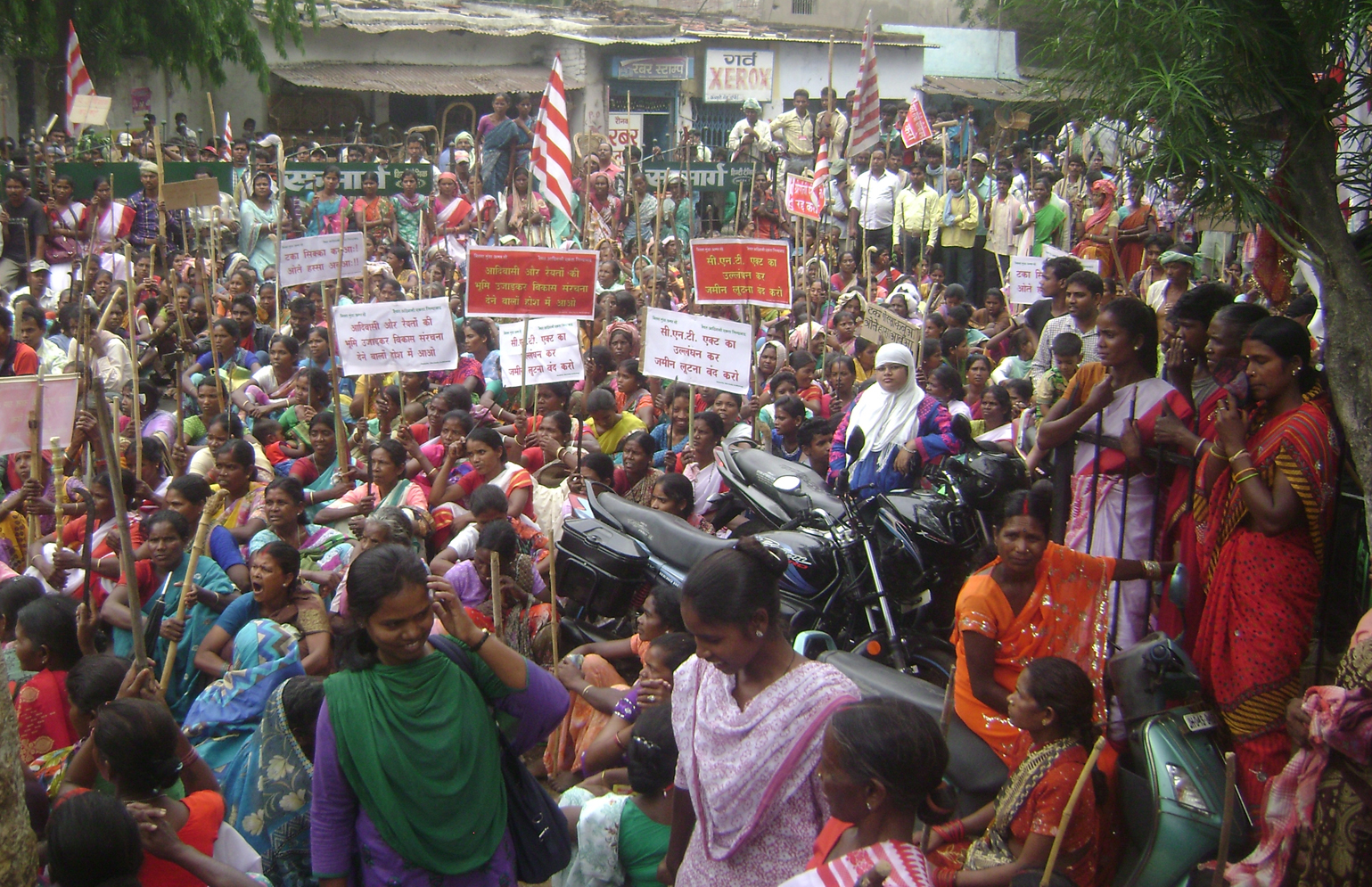
Jharkhand Observe Historic Strike against Land Acquisition Bill
Samir Dass
THE one-day Jharkhand bandh against the anti-people Land Acquisition (Amendment) Bill of the Centre on May 4 was a historic success. The strike was unprecedented and total with participation of people from all sections of the state, despite promulgation of prohibitory orders and imposition of Section 144 of the CrPC by the government. Defeating all disruptive designs of the ruling class, people in their large numbers came out on the streets spontaneously.
The bandh was the culmination of CPI(M)’s consistent efforts for a broader unification of people’s movements. In the run up to the strike, a joint convention of several political parties was held before Raj Bhavan on March 18 and it was followed by a protest rally of mass organisations including AIKS, CITU and Adivasi Adhikar Manch on March 26. Subsequently a series of campaign programmes and meetings were held to aware people about the issue. The strike call was given by CPI(M), CPI, Marxist Co-ordination Committee, AIFB, RSP, SUCI(C), Jharkhand Vikas Morcha, RJD, JD(U), Samajwadi Party and Jharkhand Janadhikar Manch. Several mass organisations also supported the bandh.
Roadblocks were put up on national highways and party workers picketed in rural areas of Ranchi district and urban settlements of Lohardaga, Khunti, Palamau, Hazaribagh, Chatra, Simdega, Ramgarh, Godda, Santhal Parganas, Pakur, Dumka, Sahebganj, Bokaro Steel City, Dhanbad, and Jamshedpur. Several trains including Howrah Rajdhani Express and Toofan Express were stopped at different stations by bandh supporters. At least 1,500 long distance buses were off the road and local transport came to a halt. Bus stands wore a deserted look. Flight services resumed after 4 PM. Schools, colleges and business establishment remained shut across the state. In support of the bandh, coal workers stopped loading work in Kuju, Mandu and Ghato collieries in Ramgarh and Hazaribagh districts.
A huge colourful procession started from the CPI(M) State Office and covered main thoroughfares of the city before culminating at Albert Ekka Chowk. This procession was led by CPI(M) state secretary G K Baksi and other leaders. At the call of CITU, hundreds of workers came out on the streets in support of the bandh. Participation of large numbers of tribal and women construction workers was noteworthy. AIDWA activists too joined the march.
Though the bandh was peaceful, around 1,200 activists were rounded off by police and more than 300 leaders and activists of CPI(M) were arrested, They were later released. CPI leaders Bhuneswar Mehta and K.D.Singh, and former Chief Minister and Chairman of Jharkhand Vikas Morcha Babulal Marandi led their activists in the march. Leaders of all the convening parties addressed the people at Albert Ekka Chowk.
The people of Jharkhand are already the victim of forced land eviction, displacement and migration. Around 15 lakh displaced people in Jharia, Dhanbad, Bokaro, Ranchi (Hatia) DVC catchments are yet to get compensation, rehabilitation and employment. None of the governments since 2000 has addressed their problem. Food scarcity has become a major problem with the state producing only 48 percent of its food requirement. People are being pushed to starvation without any provision of food security. Land in Jharkhand with 40 percent of national mineral reserves will be more vulnerable is this land grabbing bill is passed. The people of Jharkhand have very rightly pioneered the heightening of strong protest action in form of this historical bandh, sending a strong message to the Narendra Modi government that this bill would never be accepted and more intensive movements will be organised in the future.


